“The impact of the Green March on the feeling of national belonging in Morocco is profound and lasting, affecting cultural identity, social cohesion and national politics,” said Mr. Kaisse Ben Yahia, chargé de mission at the Royal Office, during this meeting organized by the National Council for the Integration of Moroccan Skills in the World (CNICMM) in partnership with the Montreal-based Moroccan Cultural Center (Dar Al Maghrib).
With the mobilization of hundreds of thousands of Moroccans around a common cause, the Green March reinforced the sense of belonging to a united nation, Mr. Ben Yahya pointed out, adding that Moroccans, from all ethnic and regional backgrounds, stood as one to defend their sovereignty, creating a strong collective bond.
The Green March sparked a deep sense of national pride, the speaker noted, adding that “the images of this peaceful march, where thousands of people crossed the desert, have been engraved deep down in the collective memory.”
“This symbolic act has strengthened patriotism and fueled a national narrative that values the resistance and determination of the Moroccan people to defend their rights,” he underlined, adding that this major event in Morocco’s history also consolidated social cohesion.
“By standing together for a common cause, Moroccans have transcended regional, cultural and social differences,” Mr. Ben Yahya said, stressing that the Green March “has bolstered a spirit of solidarity and unity that is essential for building a harmonious society in a country marked by diversity.”
The impact of the Green March is also clear in education and culture, he noted, adding that stories of the event are taught in schools and are an integral part of Moroccan popular culture.
“Poems, songs and works of artworks were made to celebrate this event, thus strengthening the connection of younger generations with their history and national identity,” Mr Ben Yahya said.
The Sahara issue has become a central issue in Moroccan politics, mobilizing citizens around a national cause, he said, adding that “by strengthening national identity, fueling pride and patriotism, promoting social cohesion and consolidating cultural heritage, this event remains a major pillar of the Moroccan collective conscience.”
For her part, Morocco’s ambassador to Canada, Souriya Otmani, said that the Green March remains, in the hearts of Moroccans, the symbol of the unity and mobilization of the Moroccan people around their Sahara, their territorial integrity and their values of peace and solidarity.
The Sahara issue unifies the Moroccan people around the defense of their values and legitimate rights, the diplomat pointed out. “Today, this attachment is reflected in the several diplomatic advances and international support that strengthen the Kingdom’s position,” she added.
Morocco is pursuing determined and serene diplomacy, as evidenced by the growing international recognition of the Kingdom’s sovereignty over its southern provinces, the ambassador underlined.
Morocco’s commitment to its southern provinces is also reflected through the ambitious development projects underway in this region of the Kingdom, which today houses centers of innovation, modernity and growth, in line with the Sovereign’s vision aimed at transforming the Sahara into a model of integrated regional development and socio-economic growth.
Thanks to these huge investments, Morocco’s southern provinces are not only a model of prosperity, but also a strategic bridge that connects Morocco to Africa, said the diplomat.
In her turn, the director of Dar Al Maghrib, Houda Zemmouri, stressed that the celebration of the Green March is a tribute to a historic act that carries deep values, namely unity, solidarity and unwavering attachment to the motherland.
“This celebration is also an opportunity to highlight cultural and artistic dynamics, particularly in our southern provinces, where ambitious initiatives, launched under the leadership of His Majesty the King, demonstrate the extraordinary potential of our youth and the large potential of our country,” she added.
For her part, the president of the CNICMM, Selma Regragui, underlined the strong ties maintained by the Moroccan community living abroad with the motherland, noting that the CNICMM is aimed at highlighting profiles of Moroccan origin who stand out and wish to actively participate in the development of Morocco and strengthen its influence abroad.
Also speaking at this meeting, Canadian Senator Amina Gerba praised the development dynamics underway in Morocco’s southern provinces, underscoring the importance of the large-scale projects launched in the region in various areas.
Ms. Gerba also highlighted the active contribution of the Kingdom to the development of the African continent.
This meeting was attended by several Canadian MPs, diplomats and civil society representatives in addition to members of the Moroccan community living in Canada.
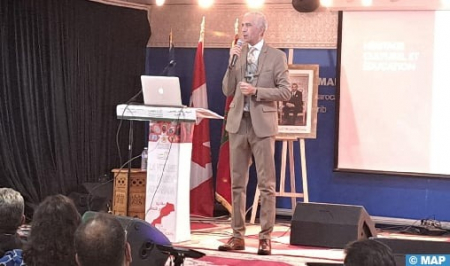
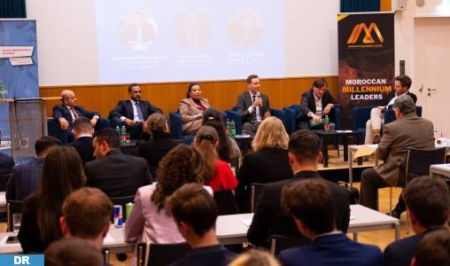

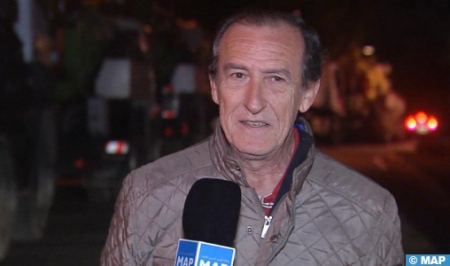

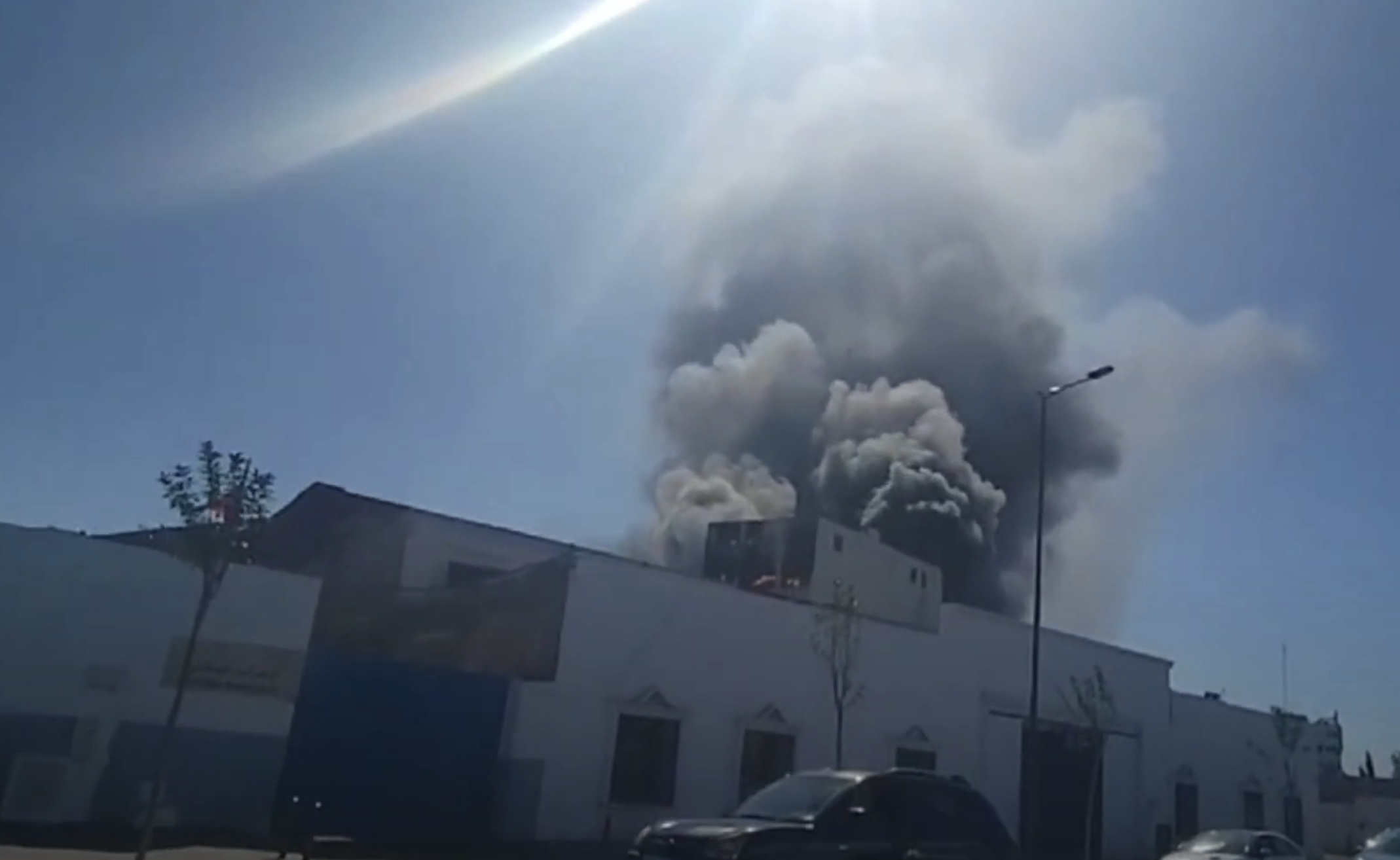


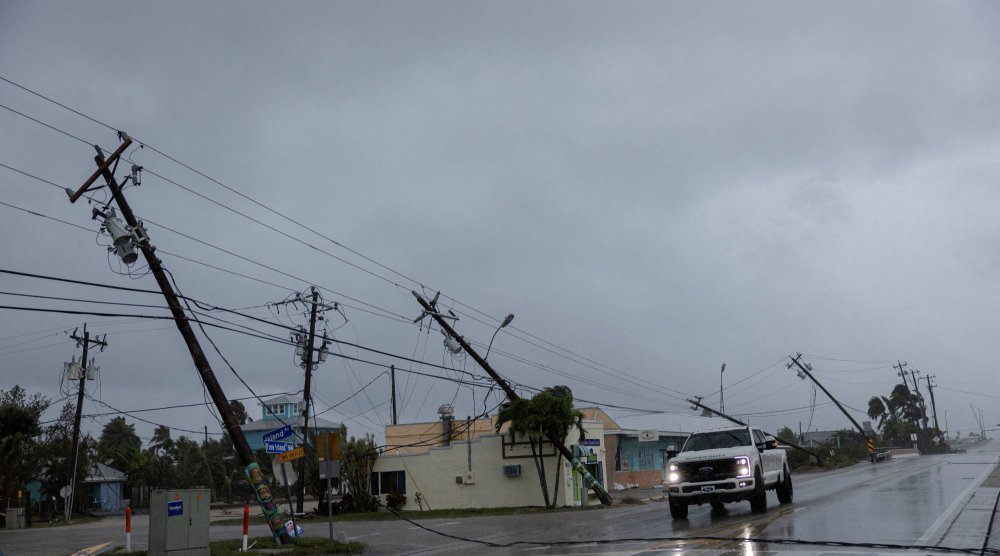


Comments
0